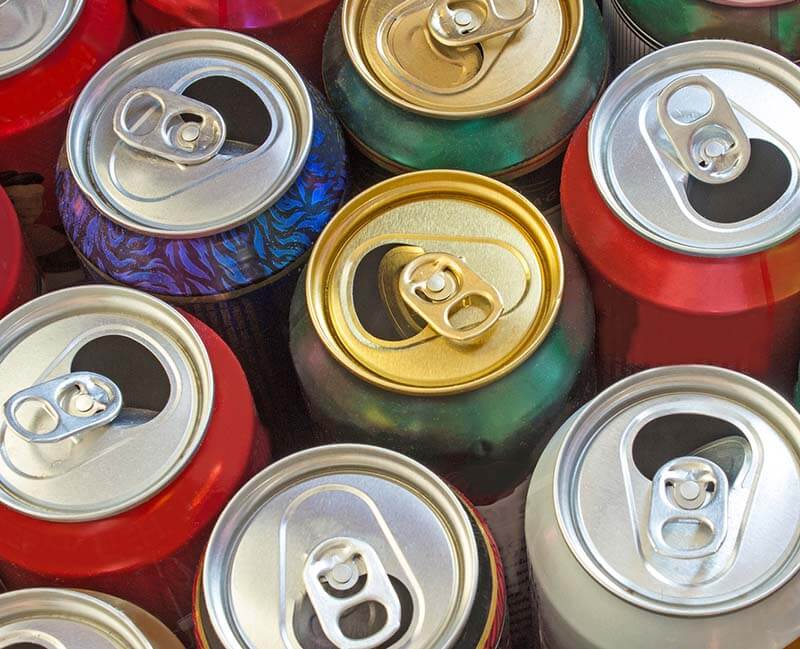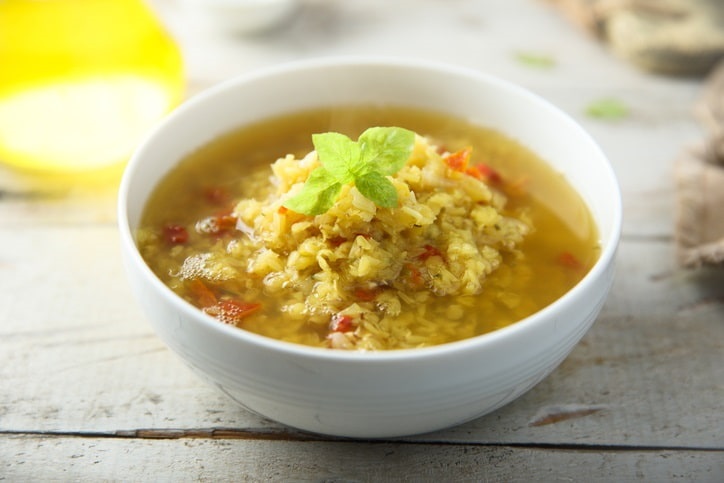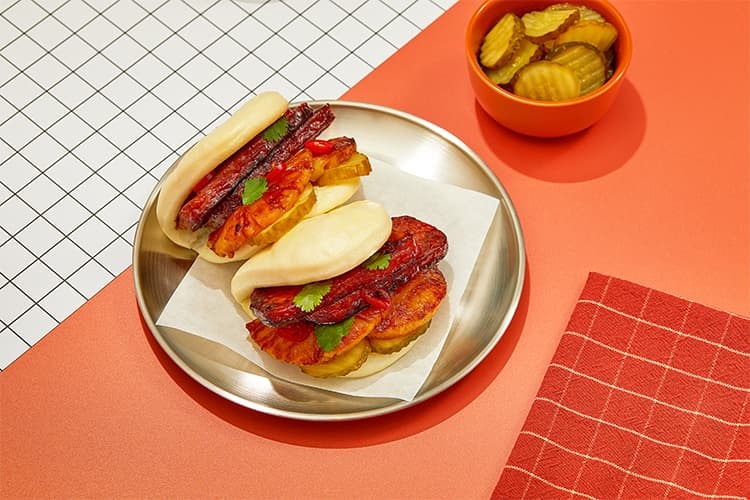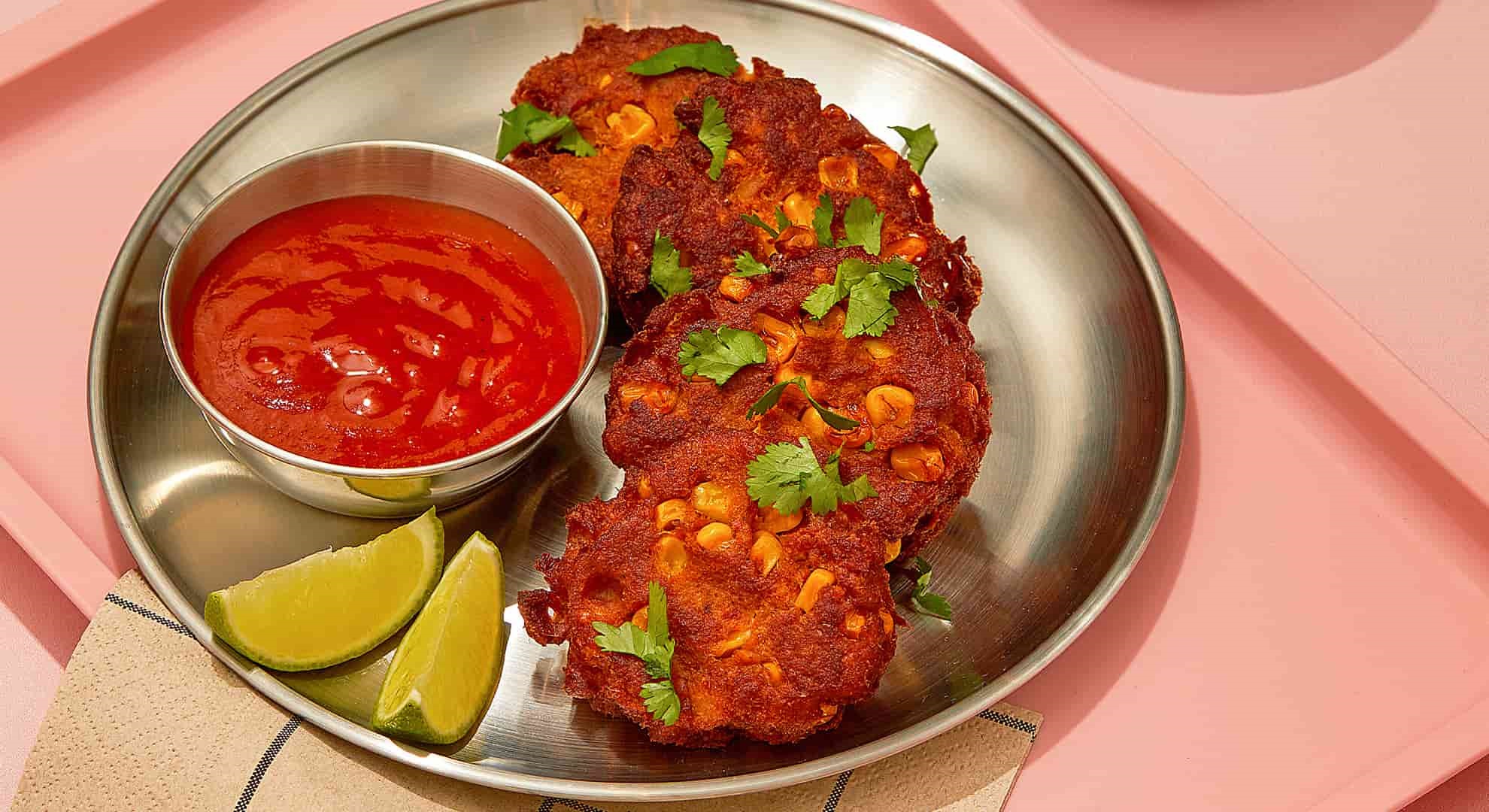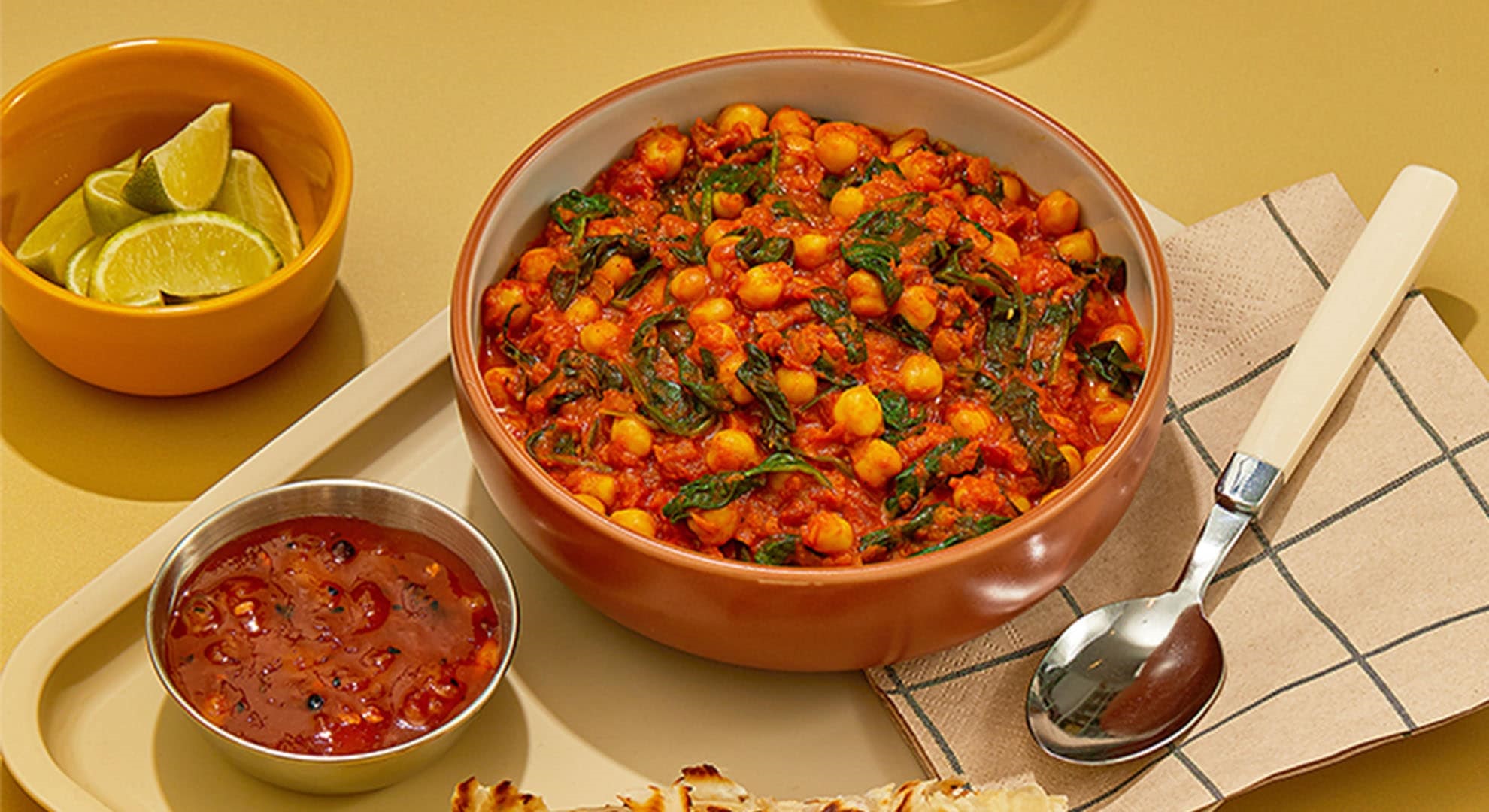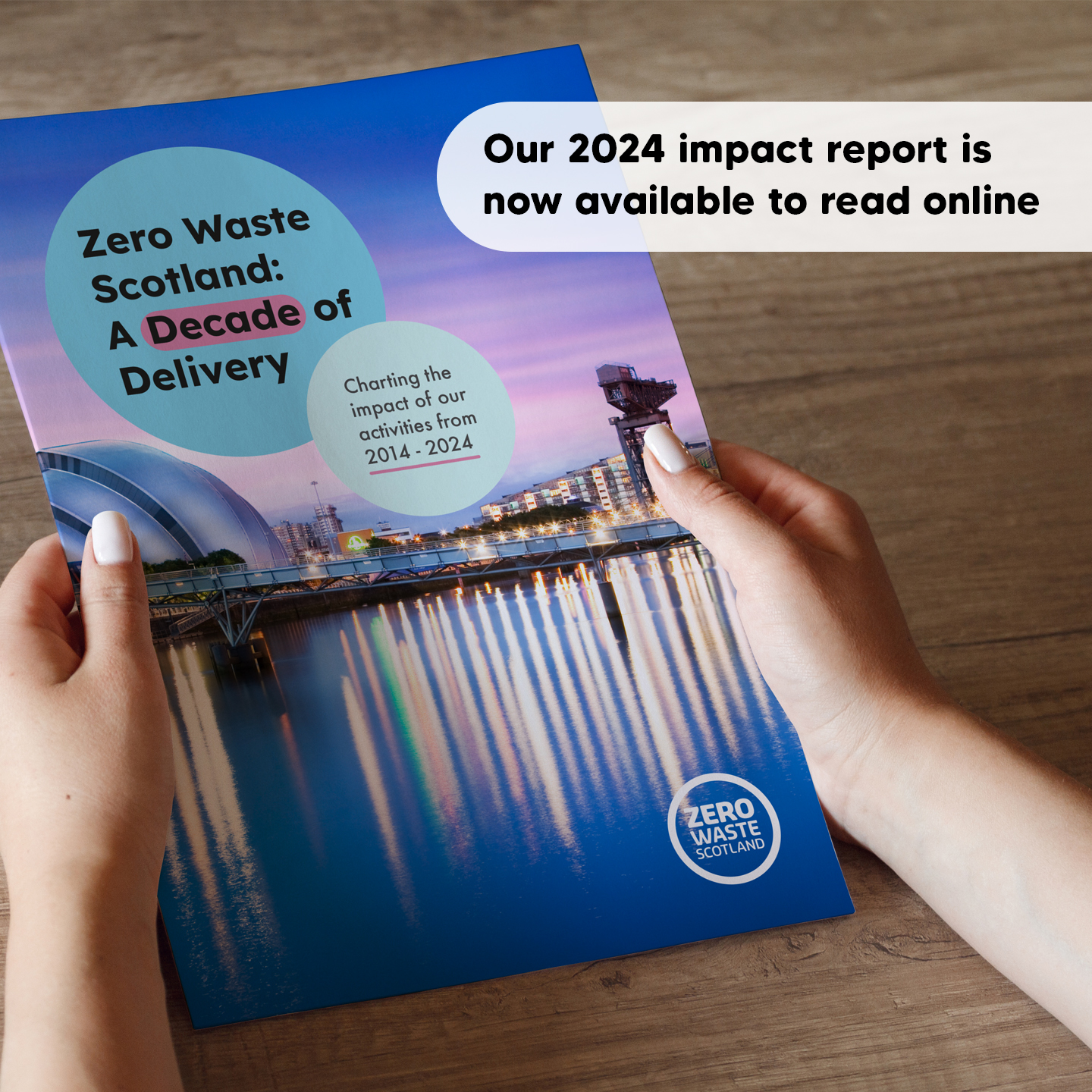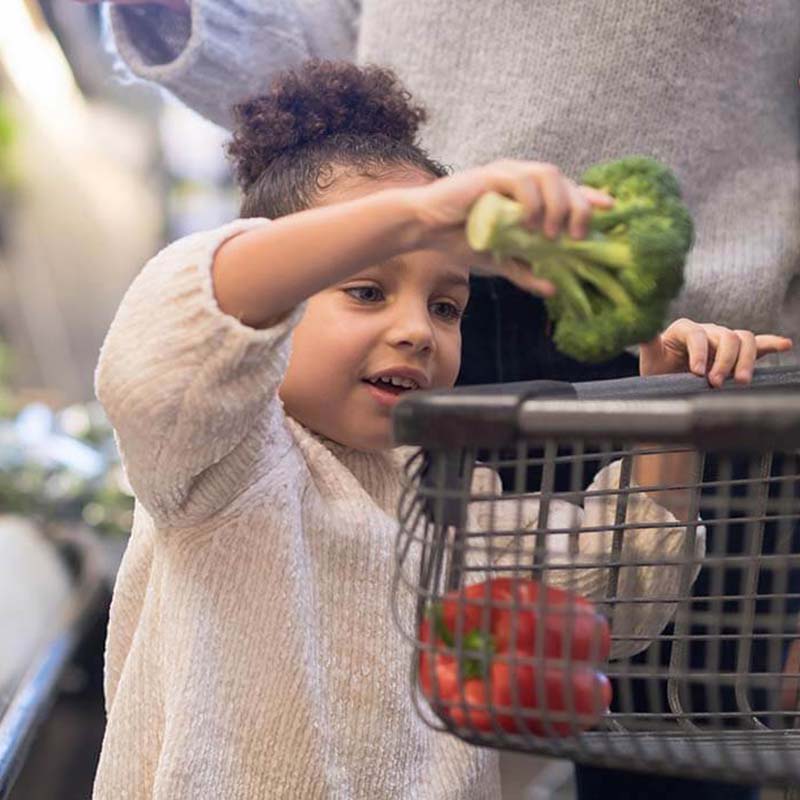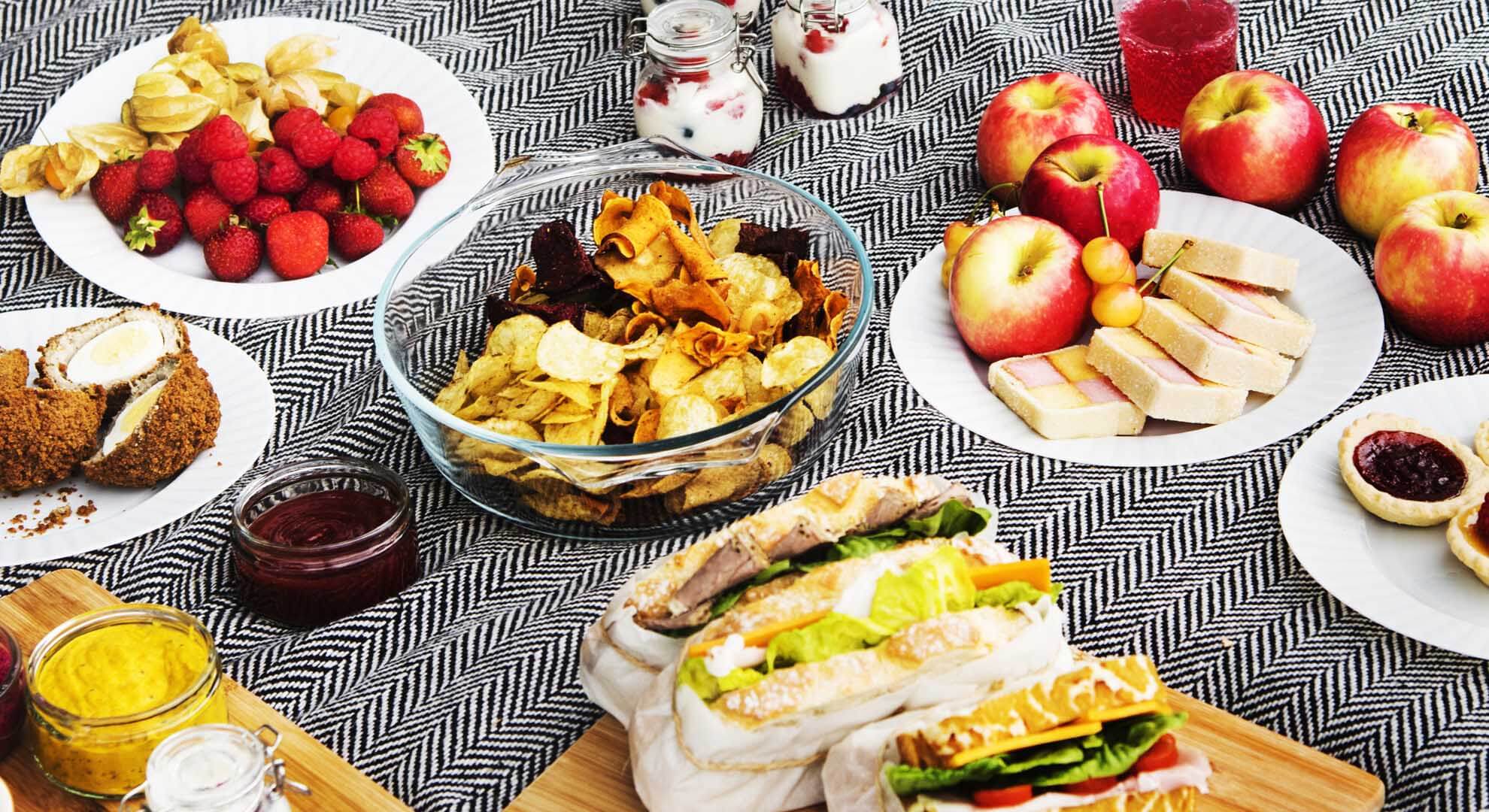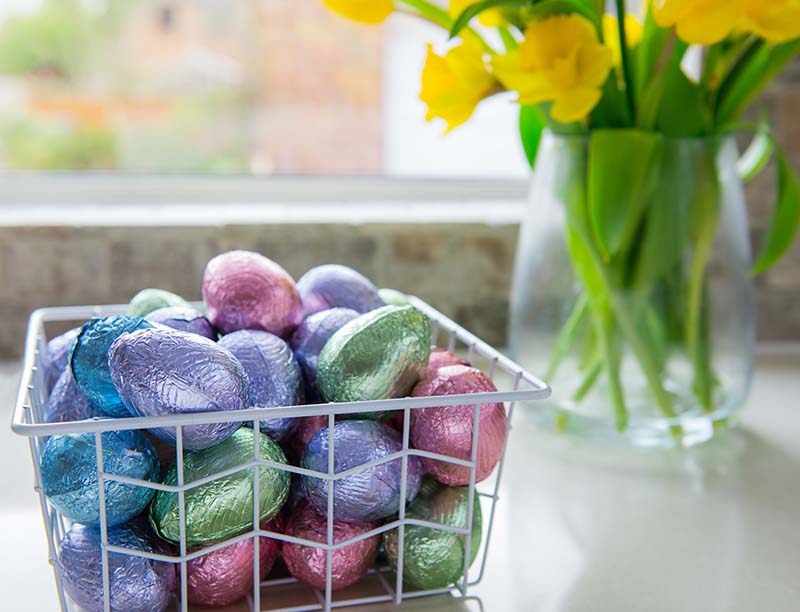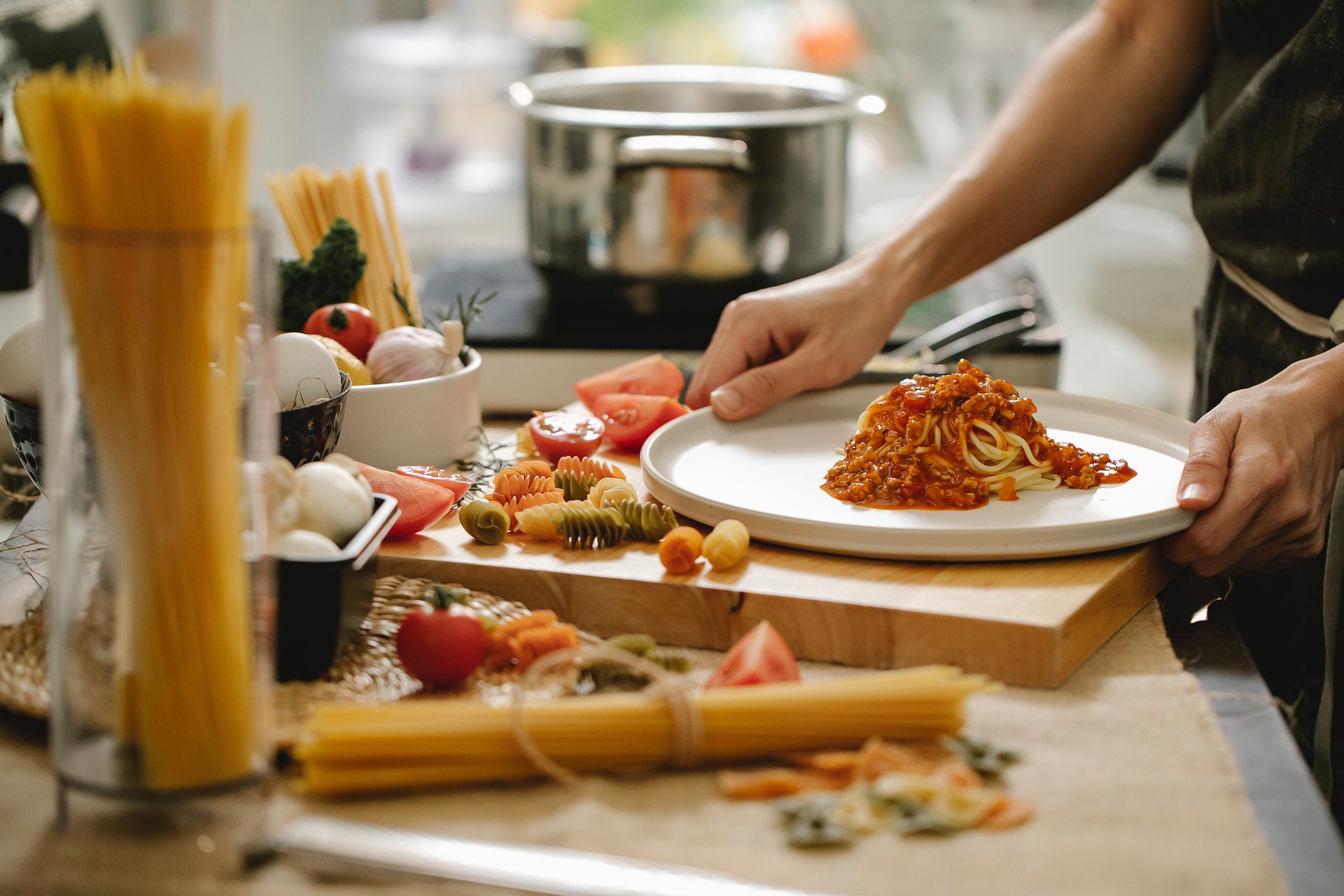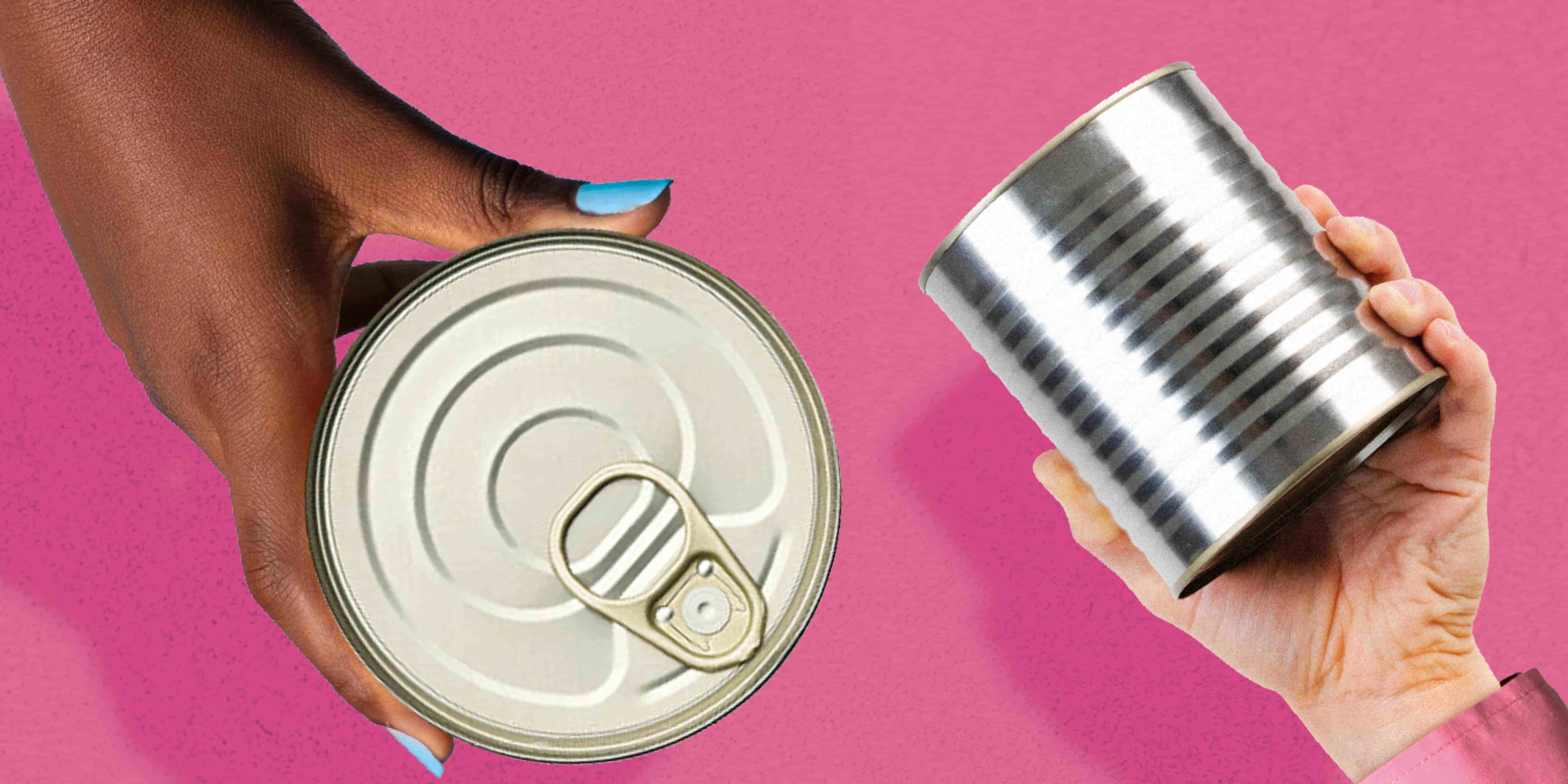
CAN-cel Food Waste
Join the CAN-paign this summer
When you think about tinned foods, do you consider them to be something that sits in the cupboard in case of an apocalypse? Well, you wouldn't be alone. Almost a quarter of the population would consider tins a 'last resort' - but that couldn't be further from the truth!
That's why we're taking our Can-paign on tour this summer, urging the nation to take a fresh look at tinned food in a bid to save money, and the planet. So join us!
Have you got some more questions about tinned food? Check out our FAQs below which lifts the lid on some of our top tin questions.
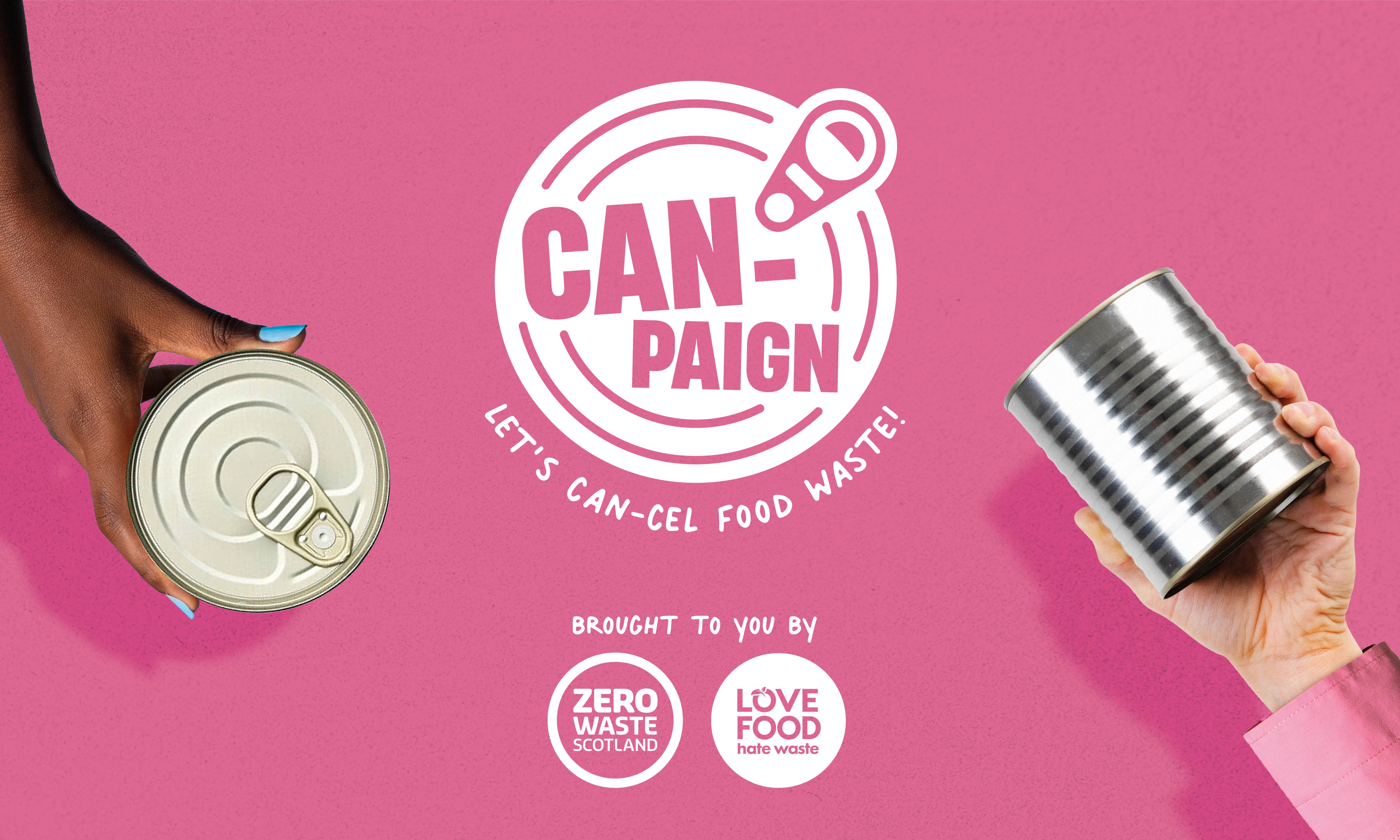
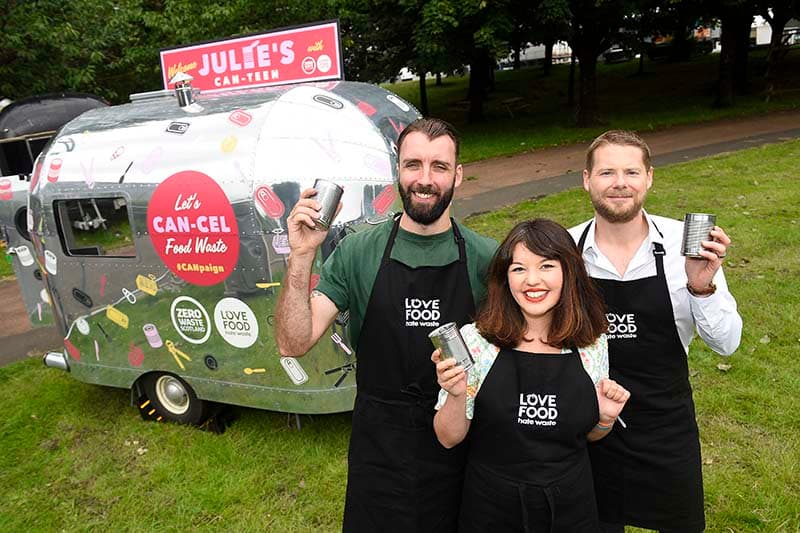
Julie's CAN-teen is back
Our tinned food pop-up restaurant in collaboration with celeb chef Julie Lin is back for the summer and it’s headlining some of Scotland’s best festivals.
The Can-teen is designed to encourage festival fans to do their bit for the planet by adding tinned food to the mix at home and away!
We’ll be popping up at Connect Festival from 12-5pm on Saturday 26th and Sunday 27th August so make sure to stop by and try out a tasty, free meal! All dishes will be served on a first-come, first-served basis.
And keep an eye out for our next guest appearance…
Why tinned?
Canned food is affordable.
Canned food is easy to store and cook.
Canned food has a long shelf-life.
Cans can be infinitely recycled
Is canned food healthy?
Yes! Canned food is healthy.
Research has shown that canned foods can actually be more nutritious than fresh or frozen foods in some cases. The canning process helps to lock in nutrients and preserve them, so canned foods can actually have a higher nutrient content than their counterparts.
Tinned versions of fruit and vegetables count towards your five a day. You can also get your daily dose of fibre, vitamins and minerals from tinned pulses such as beans, peas and lentils.
Thank you to Food Standards Scotland for their support and guidance in developing this campaign.
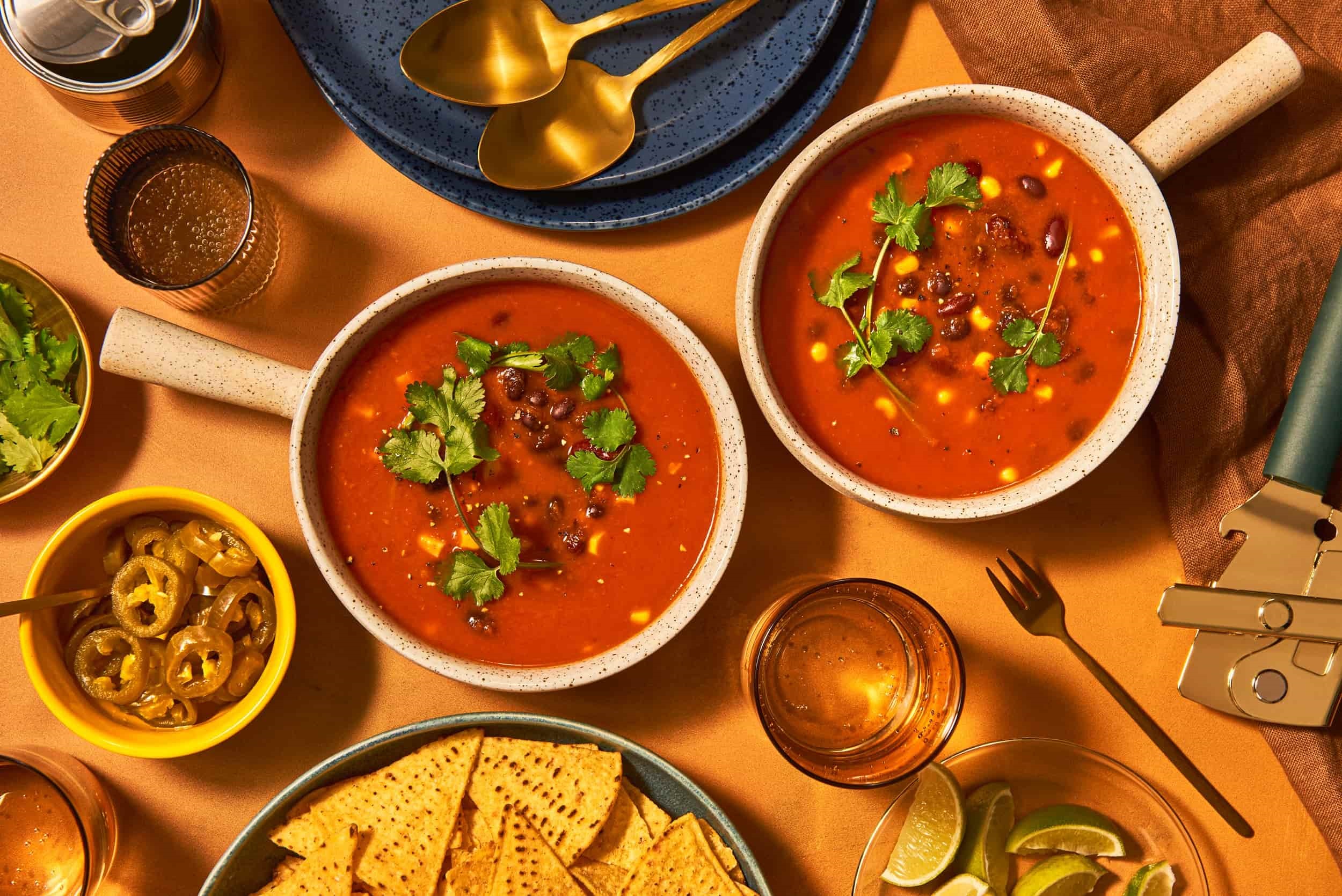
Reduce food waste with proper storage
Effective food storage can help your food last longer. A huge 41% of the food waste from homes in the UK is because we haven't used it in time. Tins have a long shelf life, making them a fantastic way to make the most of the food we love, and a great way to cut down on waste.
Knowing how to store your leftovers can help reduce food waste even further. Read our top tips on how to store leftover tinned food.
41% of the food wasted from homes in the UK is because we haven't used it in time.
Share on
Become a Can-oisseur with our tinned recipes
We've taken some of the most commonly purchased tins and have transformed them into tasty recipes - you'll be opening up a can and cooking up a storm in no time. We've also tried the viral air fryer tinned potatoes (amazing) and have explored the many, many uses of chickpeas - from hummus to stew, burgers to baking!
Use our recipes for some tin-spiration.
Frequently Asked Questions
What is food waste?
The food that is lost on the journey to our plates is out of date in supermarkets or is thrown away in our homes is known as food waste. Popping your food scraps, and leftovers or throwing out an unused bag of salad in the bin seems like a small action but it can have a big impact.
Does Scotland waste a lot of food?
Research shows Scottish households throw away 600,000 tonnes of food waste a year, that's the weight of about 2000 Kelpies statues or approximately 253kg per household.
Is food waste really bad for the planet?
The statistics of food waste can be quite shocking. Food production and consumption accounts for approximately 26% of global greenhouse gas emissions. Making more sustainable food choices can reduce harmful greenhouse gas emissions such as taking almost a fifth of cars off the road.
This is because when food waste isn't eaten or recycled, and ends up in landfill wrapped in bin bags, it causes food to rot instead of decomposing, producing methane - a greenhouse gas that is 25x more harmful than carbon dioxide.
So, food waste is worse than other environmental issues?
Food is one of the largest contributors to climate change, more than plastic and air travel. To highlight the impact, sending just 1kg of food waste to landfill produces the same carbon emissions as landfilling a staggering 25,000 500ml plastic bottles. Even when you consider the entire life cycle impacts of the production, transport and energy used to produce food compared to plastic, 1kg of food waste has the same carbon emissions as 150 plastic bottles (around four bags for life full).
So, we should just prioritise food over things like plastic recycling and travelling less?
All actions we can take to tackle climate change are important but reducing food waste is the easiest one that everyone can do in their homes every day which also has a huge impact.
Should food waste really be a priority now?
What many people don't realise is that by making managing their food effectively a priority they can feed their family for less, reduce the effects of climate change and help tackle food poverty and the energy crisis - win/win/win.
Over half of Scots are concerned about using tinned food due to misconceptions about it, which could be preventing them from navigating the cost-of-living crisis.
Our previous research showed that by saving our food from going to waste through meal planning, correct storage and using up leftovers, households could not only ensure there was food on their table but could save approximately £440 per year. This number is likely to have increased significantly given recent rises in food costs.
As the cost-of-living crisis tightens alongside food shortages; Zero Waste Scotland is encouraging Scots to take a fresh look at tins in a big to tackle spending on food that ultimately goes to waste.
Is tinned food really the answer?
Tins are a staple in any kitchen cupboard, but it's easy to overlook their ability to help us all tackle the amount of food we waste and help us better negotiate the rising cost of living in the process.
41% of the food wasted from homes in the UK is because we simply haven't used it in time. Tins have a long shelf life, which means they're a fantastic way to make the most of the food we love, and an amazing way to help our food last longer and cut down on household food going off and being thrown in the bin.
What's more, tinned food represents great value for money at a time when budgets are stretched, as well as being infinitely recyclable from the kerbside, meaning it could be time for a canned food comeback.
What is the carbon cost of using tins as packaging?
Canned food has a significantly longer shelf life, although it does have a higher carbon impact than unpackaged fresh food. However, the impact is less than the impact of food going to landfill. So, if using canned food helps people avoid wasting as much fresh food then this would have a net positive impact on their carbon emissions.
What about big businesses and their contribution, surely mine is only a small part of that?
Households are the biggest wasters when it comes to food waste. Around 70% of Scottish food waste comes from household versus commercial. Don't get us wrong, there are industries at fault too but there is often more that we can do at home than we allow ourselves to believe.
But not every home has food waste?
Everyone has some level of food waste whether it be edible or inedible food, like egg shells, bones and tea bags. As a result of our conscious and unconscious choices, we are often blissfully ignorant of the food we are wasting in our own homes
How does recycling my food help provide energy?
When food is recycled properly using a food caddy, it is taken to an Anaerobic Digestion facility where the harmful methane gas is converted into useful fuel and fertiliser. Anaerobic Digestion facilities use microorganisms to break down food waste. As it breaks down it gives off methane gas, this is collected and converted into biogas and used to generate electricity, heat, or transport fuels.
How can your quoted sources be your own research?
We invest in research to find out exactly how costly food waste is on the environment and people. Our research is done in collaboration with YouGov, and we work hard to ensure the validity and reliability of studies undertaken. We're also massive advocated of bodies such as the European Food Information Council and trusted organisations who share their own research and information about food waste. It's important to scrutinise data so we appreciate you mentioning this, and if you have any questions or want to find out more about Zero Waste Scotland please visit our About Us page for more information.
Will food tins be included in Scotland's deposit return scheme?
No. Only single-use drinks containers sold in Scotland will be included in Scotland's incoming deposit return scheme.
More information about Scotland's deposit return scheme can be found on the Circularity Scotland website. Circularity Scotland is the scheme administrator.

